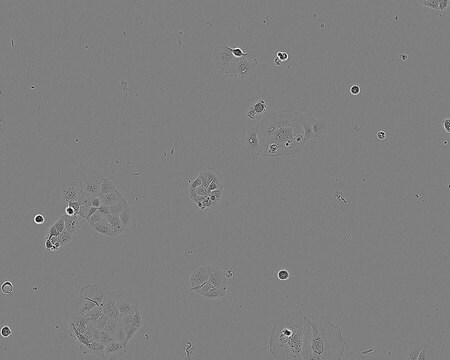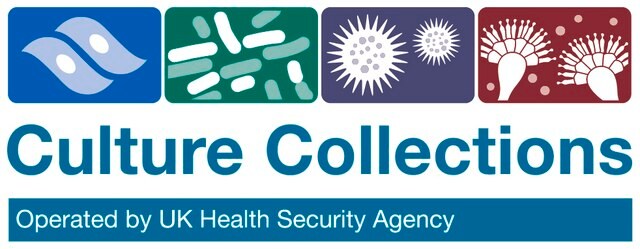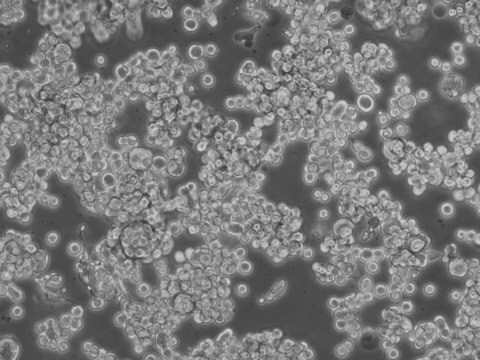All Photos(1)
About This Item
UNSPSC Code:
41106514
biological source:
human colon
growth mode:
Adherent
karyotype:
2n = 46, pseudodiploid
morphology:
Epithelial
products:
Not specified
receptors:
Not specified
relevant disease(s):
cancer
Recommended Products
Product Name
DLD-1, 90102540
biological source
human colon
growth mode
Adherent
karyotype
2n = 46, pseudodiploid
morphology
Epithelial
products
Not specified
receptors
Not specified
technique(s)
cell culture | mammalian: suitable
relevant disease(s)
cancer
shipped in
dry ice
storage temp.
−196°C
Cell Line Origin
Human colon adenocarcinoma
Cell Line Description
Derived from human colorectal adenocarcinoma. The cells have been used in the study of polar solvents on cell characteristics.The four cell lines: DLD-1 (90102540), HCT-15 (91030712), HCT-8 (90032006) and HRT-18 (86040306) have been shown to have a common genetic origin.
Application
DLD-1 cell line has been used to express shRNA oligos directed against coronin 2A (CRN5) and to study the role of CRN5 in tumor cell migration. It has also been used to determine the efficiency of antibody-coupled short interfering RNA (siRNA) for in vivo mRNA knockdown.
DNA Profile
STR-PCR Data: Amelogenin: X,Y
CSF1PO: 11,12
D13S317: 8,11
D16S539: 12,13
D5S818: 13
D7S820: 10,12
THO1: 7,9.3
TPOX: 8,11
vWA: 18,19
CSF1PO: 11,12
D13S317: 8,11
D16S539: 12,13
D5S818: 13
D7S820: 10,12
THO1: 7,9.3
TPOX: 8,11
vWA: 18,19
Culture Medium
RPMI 1640 + 2mM Glutamine + 10% Foetal Bovine Serum (FBS).
Subculture Routine
Split sub-confluent cultures (70-80%) 1:3 to 1:10 i.e. seeding at 1-3 x 10,000 cells/cm2 using 0.25% trypsin, 0.02% EDTA.
Other Notes
Additional freight & handling charges may be applicable for Asia-Pacific shipments. Please check with your local Customer Service representative for more information.
Choose from one of the most recent versions:
Certificates of Analysis (COA)
Lot/Batch Number
Sorry, we don't have COAs for this product available online at this time.
If you need assistance, please contact Customer Support.
Already Own This Product?
Find documentation for the products that you have recently purchased in the Document Library.
Our team of scientists has experience in all areas of research including Life Science, Material Science, Chemical Synthesis, Chromatography, Analytical and many others.
Contact Technical Service



